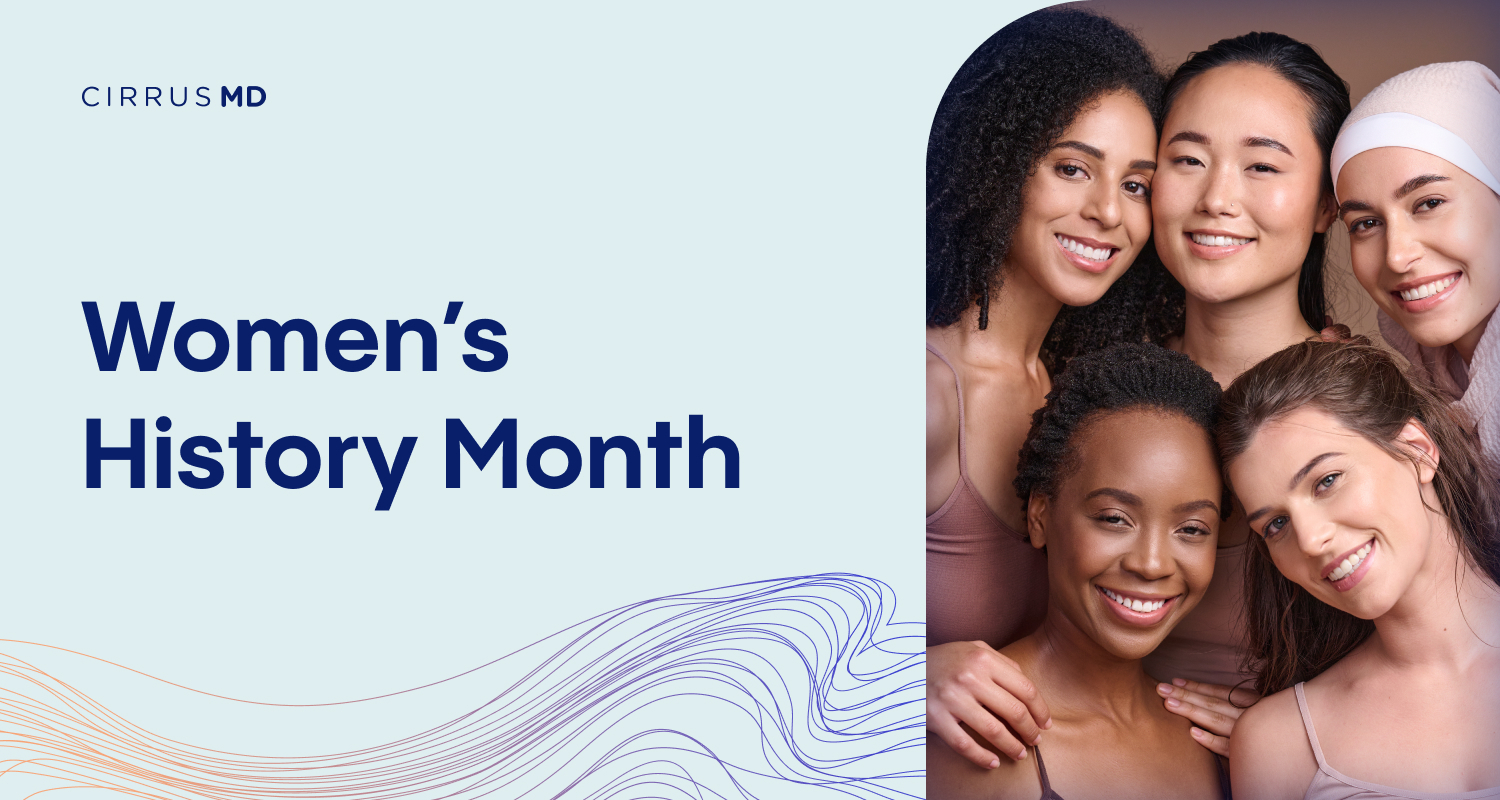Q: It’s Women’s History Month. What does Women’s History Month recognize and as a woman physician, what do you see women dealing with today?
A: This month is designated as recognition and celebration of the contributions women have made to the United States. I’m glad we have designated a month to recognize the many achievements of women over the course of American history. And as a female physician, I’m especially proud of the achievements of women in the field of medicine and excited to see what the next several years will bring.
The role of women in the U.S. today has certainly not gotten easier. Women are so often the caretaker for their family —whether that’s their kids or their parents — while also working outside the home. As a doctor, I often see that women aren’t finding the time to care for themselves.
There are some interesting statistics being reported. For example, I just read that during the past 12 months, nearly half of all American women skipped a preventive health service such as an annual checkup, a vaccine or a recommended test or treatment(1). This is really hard to watch, especially since the reason most often cited was that the woman was unable to afford the out-of-pocket costs associated with her care. The other reason most often noted was the difficulty of getting an appointment with a provider.
But let’s face it — what this translates to is that women are delaying care and even jeopardizing their health.
Q: Tell us more about women skipping their screenings and preventive care measures. That seems very concerning!
A: While we’re seeing a higher rate of patients with insurance coverage, we also see a large number of high deductible plans. So despite the increase in coverage, many people can’t afford their preventive care. In fact, 45% of women surveyed said they had foregone at least one kind of preventive care service in the past 12 months. When asked for the single most important reason why they may have not received preventive care
- 25% said they couldn’t afford the out-of-pocket costs
- 23% said they had limited time to make an appointment
- 11% faced difficulties in scheduling an appointment, such as challenges with online scheduling or healthcare professional availability
- 9% were limited in their choices by their insurance
Q: Thinking specifically about women’s health maintenance, what’s most important to consider?
A: Preventive care like well visits, screenings and vaccines reduce the risk for disease and help support healthy lives. It’s true that women have unique needs that are different from men, and therefore have a different set of recommended preventive services including screenings for cervical cancer, breast cancer and bone density scans.
As we’re thinking about women’s health, let’s also consider some of the issues we have around equity in care. We can use cervical cancer as an example.
76% of women have received a cervical cancer screening in their lifetime, however white women are more likely to have received a cervical cancer screening (81%) than Black women (65%), Asian women (66%), or Hispanic women (68%). Women who are insured (79%) are more likely to have received a screening than uninsured women (51%), and Medicaid patients were less likely to have received a screening than those with other insurance.
The disparities in screenings only underscore and exacerbate the disparities in cervical cancer. Hispanic women have the highest rates of new cervical cancer and Black women are more likely to die from cervical cancer than other groups of women.
Q: How does CirrusMD help women improve access to care?
A: There are some services that must be performed in person. But a virtual physician can help assess a patient’s risk, review previous results, provide information about screening recommendations that may have changed over the years. For example, not everyone needs a pap smear annually. We can help evaluate risk and determine whether a person should be scheduling their next screening.
CirrusMD physicians can help patients keep track of their health by helping reviewing their numbers. (In our February blog post, we discussed physician follow-up for help managing high blood pressure and minimizing the risk of heart disease.)
In fact, ongoing chats with a virtual primary care doctor provide busy women with the easiest access to care, and can address topics from specific women’s health concerns to helping with stress, smoking cessation, weight loss, cholesterol management, diabetes — there are so many things a virtual care physician can help with when they become an integrated part of a patient’s ongoing care.
What matters most to patients is that in addition to improving their health, it’s all about access and convenience of care. CirrusMD physicians are available 24/7/365, and it only takes a moment to begin an encounter.
Q: How does a virtual care physician assist with things like cancer screenings, vaccinations, lab work?
A: A CirrusMD doctor can help order and interpret lab work. We can help the patient find and coordinate in-person referrals. We can help the patient know what vaccines they may need and then how to get them at their local pharmacy.
I know that it can be hard for busy primary care doctors to get through everything during an in-person visit. CirrusMD is always available to provide the additional care or answer the follow-up questions a patient may have. It’s also worth mentioning that the team of CirrusMD physicians is extremely committed to supporting women’s health. In fact, 57% of our physicians are female.
Q: For employers who have a large percentage of female employees, what can they do to help with women’s health needs?
A: Employers can help with ongoing communications to female employees, reminding them to reach out to a CirrusMD physician for ongoing help with care or health-related questions, to schedule lab work or discuss what screenings are needed.
I recently talked with a patient who saw a CirrusMD poster in her company break room, then completed an encounter during her lunch break. She was so happy to have her questions answered, without having to take time off work to go to her PCP. Not only was it hard for her to get an in-person appointment, but she would have had to leave work for 3-4 hours, which in turn would have led to lost wages.
Q: You recently participated in a panel discussion with the American Academy of Family Physicians, and their recent study on Women’s Health(1) came up. What are your observations on the study?
A: An interesting finding from the survey was how important it is for preventive care guidelines for services to be affordable, flexible and equitable. Specifically, female respondents said that it’s important that guidelines prioritize:
- Ensuring comprehensive preventive care and screening is affordable (91%)
- Removing barriers to care, not making it more difficult for women to get screenings, and ensuring that equitable standards of care are available to all women (89%)
- No negative impact on health equity (87%)
What I love about being a physician at CirrusMD is not just about providing care, it’s also being able to demonstrate that the care we provide is making a difference, in health outcomes and in people's lives. I’m so proud of what we do!
References:
American Academy of Family Physicians (Feb. 2023). “Survey Finds Many Women Go Without Preventive Care”







